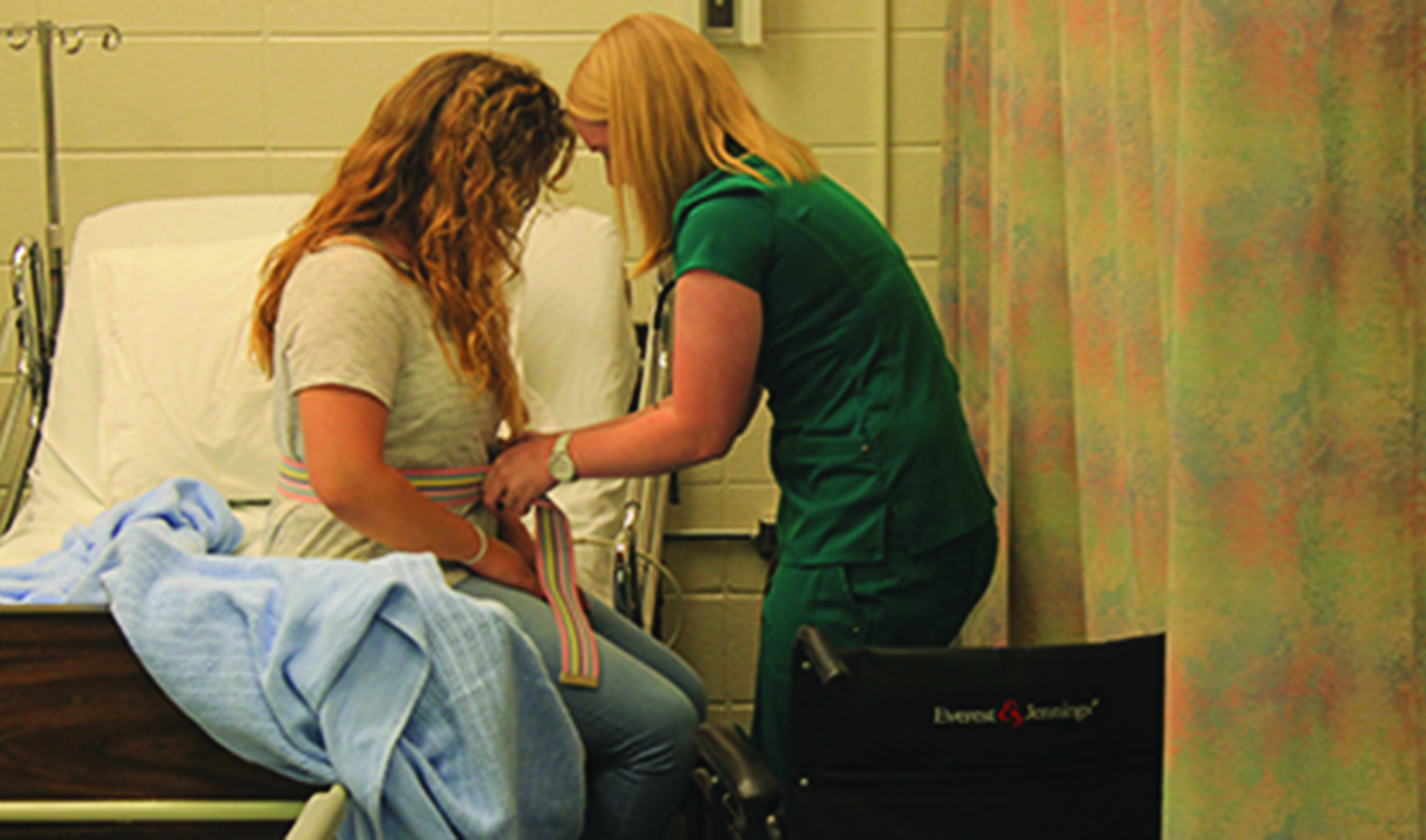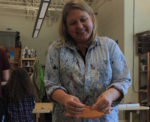During a few months of every school year, a select group of students can be seen roaming the halls in scrubs. These students are participating in clinicals for a course offered called Nursing Fundamentals.
According to the course guide, Nursing Fundamentals is “designed for students interested in medical careers where personal care and basic nursing skills are used.” The course itself helps prepare students for the National Nurse Aide Assessment (NNAAP). Nurse aides, also called CNAs (Certified Nursing Assistants), lend patients assistance with basic tasks like bathing, feeding, dressing, shaving and positioning.
“I remember walking out of my first day of clinicals and being like, ‘Wow this is what I want to do, this is what I want to be; I want to work in the healthcare industry,” senior Julia Cimler said. “It was a lot of fun. It was a little bit stressful, just the fact that it’s real now. If you mess up a step, it’s not, ‘Oh, Ms. [Julie] Fogle, I messed up. I’m sorry. Let me go back and retry that.’ If you make a mistake, you can’t go back and fix it. You’re interacting with a real person.”
Clinicals are a chance for nursing fundamentals students to acquire hands on experience. During their class period they travel to Camden, an assisted living facility, as well as Galloway Ridge, a memory care facility, where they shadow certified nursing assistants. For second semester, clinicals began on March 13 and ended on April 26.
The class is comprised of two parts: the curriculum and the skills portion.
“[The students] learn the theory behind the skills and taking care of residents,” said Julie Fogle, first-year nursing fundamentals instructor and registered nurse. “Then we put that theory into practice with the skill. They have to pass off on 67 skills and they have to do that at 100 percent proficiency—if they miss a step, they don’t pass that skill. Once they’ve passed off on all of those skills, then we put what we’ve learned into practice by going to clinicals.”
Becoming a CNA before nursing school or before following the pre-med track is useful because it allows students to acquire hands-on experience. It also gives students a chance to decide whether or not entering the medical field is a logical choice for them.
“I chose to take this class because I know that later on in life, I want to go into the medical field,” senior Savannah Bass said. “I’m going to start in nursing and then make my way up to whatever I want to be. I’m not sure right now, but I’m leaning towards a Pediatric Physician, so I think starting out here is the best way to see if it’s actually what I want to do.”
According to Indiana University-Bloomington, shadowing a doctor or nurse is one of the best ways to get direct exposure to medical practice and learn what it really is like to work as a healthcare professional.
“Clinicals are where we go to be ‘in training’ to become a CNA,” Bass said. “So we go and we are paired with a CNA. [We] shadow them and perform the skills and tasks that we have to pass off on in this class.”
Because clinicals require students to do personal tasks, occasionally clients become unruly.
“A lot of them like to yell at you—you get a hit a lot—but I think a lot of it is forming a bond with the people that you go and see every day,” Bass said. “I’m definitely not going to let it phase me, because it was still a good experience, and I still enjoyed it.”
Senior Rachel Shore had similar opinions.
“[Clinicals give] you the basic foundation of what you need to do and what you’re going to do in the future [when becoming a nurse],” Shore said. “Hopefully I’m not wiping butts in the future, but that’s part of your starting point. I liked doing clinicals at Galloway. It was clean, and we were at Galloway long enough to actually build relationships with people.”
Nursing fundamentals is work-heavy, but opens many doors for students looking to dive into the medical field.
“This class is an amazing opportunity, and I like to say that it’s truly what you make of it,” Cimler said.
– By Ava Johnson



